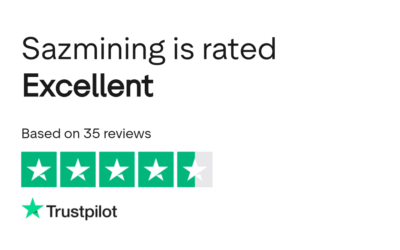Mezzanine financing is a hybrid form of financing that combines elements of debt and equity capital. It is a type of subordinated debt that sits between senior debt and common equity in a company’s capital structure. It is typically used by companies that are looking to expand, make an acquisition, or recapitalize their business.
Mezzanine financing is often used by companies that have exhausted their senior debt capacity but are not yet ready to issue common equity. It provides a way for these companies to access additional capital without diluting the ownership of the existing shareholders.
Table of Contents
How Does Mezzanine Financing Work?
Mezzanine financing is typically structured as a loan that is convertible into equity. The lender, known as a mezzanine investor, provides the company with a loan that is subordinated to the senior debt. In exchange, the mezzanine investor receives a higher interest rate than the senior debt and also receives warrants or an equity kicker that gives them the right to convert the debt into equity at a later date.
The mezzanine loan is typically unsecured, meaning that it is not backed by any collateral. This makes it riskier for the lender, which is why the interest rate is higher than the senior debt. The mezzanine investor is also typically granted certain rights, such as the ability to appoint a board member or veto certain corporate actions.
Advantages of Mezzanine Financing
It offers several advantages for companies that are looking to raise capital:
- Access to Capital:It provides companies with access to additional capital that they may not be able to obtain through traditional sources of financing, such as bank loans or equity financing.
- Flexible Repayment Terms: It typically has a longer repayment period than traditional bank loans, which can be beneficial for companies that are looking to finance long-term projects or acquisitions.
- Preservation of Equity: By using it, companies can raise capital without diluting the ownership of the existing shareholders. This can be particularly important for family-owned businesses or companies that are looking to maintain control of the business.
- Tax Benefits: The interest payments are typically tax-deductible, which can provide a significant tax benefit for the company.

Disadvantages of Mezzanine Financing
While mezzanine financing can be a useful tool for companies that are looking to raise capital, it also comes with some disadvantages:
- Higher Cost of Capital: It is typically more expensive than traditional bank loans, with interest rates that can range from 12% to 20% or more.
- Dilution of Equity: While it can help preserve equity in the short term, the conversion feature of the debt can ultimately lead to dilution of the existing shareholders’ equity.
- Restrictive Covenants: It often comes with restrictive covenants that can limit the company’s ability to take certain actions, such as making acquisitions or paying dividends.
- Complexity: It can be a complex and time-consuming process, with extensive due diligence and negotiation required to structure the deal.
Types of Mezzanine Financing
There are several different types, each with its own unique characteristics:
- Subordinated Debt: This is the most common form, where the mezzanine investor provides a loan that is subordinated to the senior debt.
- Preferred Equity: In this type, the mezzanine investor receives a preferred equity stake in the company, which provides them with a higher priority claim on the company’s assets and cash flows.
- Convertible Debt: This type combines a loan with an option to convert the debt into equity at a later date.
- Royalty-Based Financing: In this type, the mezzanine investor provides a loan in exchange for a percentage of the company’s future revenue or profits.
Who Uses Mezzanine Financing?
Mezzanine financing is typically used by a variety of companies, including:
- Private Equity-Backed Companies: Private equity firms often use mezzanine financing to help fund their acquisitions or to provide additional capital to their portfolio companies.
- Family-Owned Businesses: It can be a useful tool for family-owned businesses that are looking to raise capital without diluting the ownership of the existing shareholders.
- Publicly-Traded Companies: Publicly-traded companies may use mezzanine financing to fund acquisitions or to refinance existing debt.
- Startups and High-Growth Companies: It can be a useful tool for startups and high-growth companies that are looking to fund their expansion or to bridge the gap between their current financing and their next round of equity financing.

The Mezzanine Financing Process
The process of obtaining mezzanine financing typically involves the following steps:
- Identify Financing Needs: The company must first identify its financing needs, including the amount of capital required, the intended use of the funds, and the timeline for the financing.
- Evaluate Financing Options: The company must then evaluate its financing options, including traditional bank loans, equity financing, and mezzanine financing.
- Identify Mezzanine Investors: The company must identify potential mezzanine investors, which can include private equity firms, hedge funds, and specialized mezzanine financing firms.
- Negotiate Deal Terms: Once a mezzanine investor has been identified, the company and the investor must negotiate the terms of the financing, including the interest rate, the conversion features, and any covenants or restrictions.
- Conduct Due Diligence: The mezzanine investor will typically conduct extensive due diligence on the company, including a review of its financial statements, its management team, and its competitive position.
- Close the Deal: Once the terms of the financing have been agreed upon and the due diligence process has been completed, the mezzanine financing deal can be closed.
Conclusion
Mezzanine financing is a valuable tool for companies that are looking to raise capital without diluting the ownership of the existing shareholders. While it can be more expensive than traditional bank loans, it can provide companies with the flexibility and access to capital that they need to grow and succeed. By understanding the advantages and disadvantages, companies can make informed decisions about whether it is the right financing option for their business.









